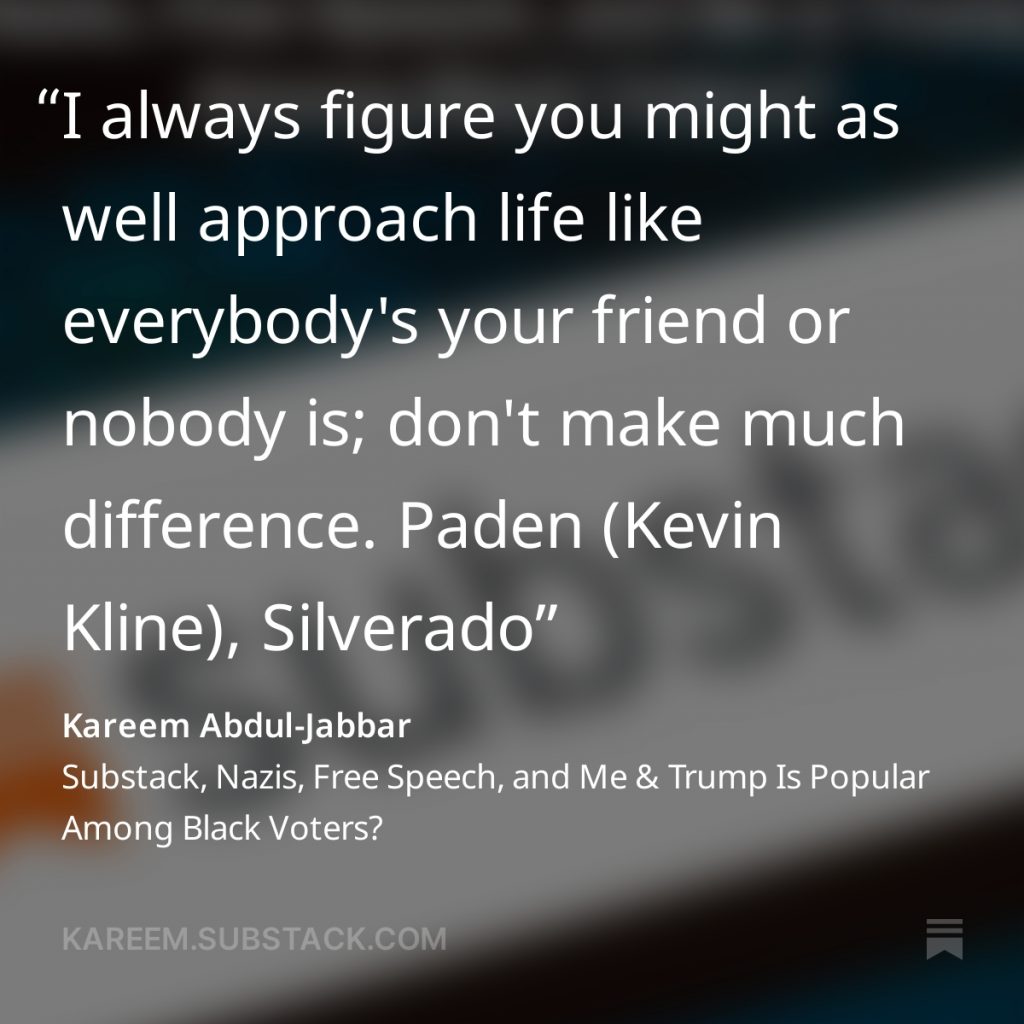
If you don’t learn to laugh at trouble, you won’t have anything to laugh at when you’re old.
Mark Twain
The Sky is Falling
pessimism [is] a membership badge—the ultimate sign that you are on the side of the good. If your analysis is not apocalyptic, you’re naive, lacking in moral urgency, complicit with the status quo.
In 1964, 45 percent of Americans said that most people can be trusted, according to a survey by American National Election Studies. That survey no longer asks this question, but a University of Chicago survey asked the exact same question to Americans in 2022 and found that number is now 25 percent. Seventy-three percent of adults under 30 believe that, most of the time, people just look out for themselves, according to a 2019 Pew Research Center survey. Seventy-one percent say that most people “would try to take advantage of you if they got a chance.”
apoplectic rigidity becomes the default mode of seeing things. This damages the ability to perceive reality accurately. One of the great mysteries of this political moment is why everyone feels so terrible about the economy when in fact it’s in good shape. GDP is growing, inflation is plummeting, income inequality seems to be dropping, real wages are rising, unemployment is low, the stock market is reaching new peaks. And yet many people are convinced that the economy is rotten. These are not just Republicans unwilling to admit that things are going well under a Democratic president. The real divide is generational. In a recent New York Times/Sienna College poll, 62 percent of people over 65 who voted for Joe Biden in 2020 report that the economy is “excellent” or “good”—but of Biden supporters ages 18 to 29, only 11 percent say the economy is excellent or good, while 89 percent say it is “poor” or “only fair.”
Is this because the economy is particularly bad for young people? That’s not what the data reveal. As Twenge has pointed out, the median Millennial household earns considerably more, adjusted for inflation, than median households of the Silent Generation, the Boomers, and Generation X earned at the comparable moment in their lives; they earn $9,000 more a year than Gen X households, and $10,000 more than Boomer households did at the same age. Household incomes for young adults are at historic highs, while homeownership rates for young adults are comparable to previous generations’. All of which suggests that difference in the generational experiences is not economic; it’s psychological.
Excerpts from David Brooks’ Atlantic Article
Humility
Humility involves the following:
- Possessing an accurate assessment of yourself
- A willingness to acknowledge your mistakes and limitations
- An openness to the viewpoints and ideas of others
- An ability to keep your accomplishments in perspective
- Low self-focus
- Appreciating the value other people
http://experimentaltheology.blogspot.com/2024/01/a-peaceable-faith-part-6-cultural.html

Holiness
Buechner says that holiness is not a human quality like virtue is. “If there is such a thing at all, holiness is Godness and as such is not something people do but something God does in them…It is something God seems especially apt to do in people who are not virtuous at all, at least not to start with.”
If we are pursuing holiness by pursuing virtue itself, we are going to pursue the virtues as we see them. Yet it’s not only our behavior that is amiss, but also our seeing. And we miss the realness of virtue. “If you’re too virtuous, the chances are you think you are a saint already under your own steam, and therefore the real thing can never happen to you.” Holiness is all around us, but we have trouble seeing it. We cannot make holiness real. Holiness helps us to see the realness. In me. In you. In my oat cake with mascarpone cheese and the snow that I am crunching my feet on outside this week.
ART
The best of the arts induce humility. In our normal shopping mall life, the consumer is king. The crucial question is, do I like this or not? But we approach great art in a posture of humility and reverence. What does this have to teach me? What was this other human being truly seeking?
David Brooks
Aging
In Rainer Maria Rilke’s novel “The Notebooks of Malte Laurids Brigge,” the protagonist notices that as he ages, he’s able to perceive life on a deeper level: “I am learning to see. I don’t know why it is, but everything penetrates more deeply into me and does not stop at the place where until now it always used to finish.”
STILL ON THE JOURNEY